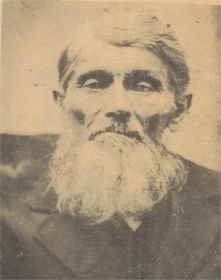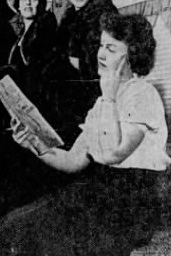Slave Owning in the Family: A Personal Meditation
Before we proceed any further, there is the elephant in the room that we must address: slaveowners in the family.
Slavery has been called America's "Peculiar Institution." It had a central and inescapable place throughout American history, and its aftermath resonates and is just as inescapable in the present day. Although slavery has existed throughout human history and has impacted many empires, nations, and states, few if any were nearly torn apart by the economic and moral crises that ultimately led to our Civil War. And the aftermath of slavery—segregation and inequality—threatens the very foundation of the nation and its principles to the present day. Slavery is our nation’s “original sin,” from which we are struggling for redemption.
My first encounter with proof that some of our ancestors were indeed slaveowners came with my acquisition of a copy of the will of William Duvall (1754?-1815) [3rd great grandfather; NextGen: 4th great grandfather]. I received a copy from Pamela Johnson, a cousin I had been corresponding with in the early 2000s. In the text of the will, William Duvall bequeaths some slaves to his children, including our Sarah Eleanor Duvall (1800?-after 1850) [2nd great grandmother; NextGen: 3rd great grandmother].
I was not shocked intellectually by this fact presented in writing before my eyes. But I was struck by the intimate, specific, horrific reality of it. Flesh was being put on the bones. That flesh and those bones belonged to real persons. The thing that struck me the most was that this reality had a name: "Charlotte."
The excerpt that most struck me was:
To my daughter Sarah Elinor Duvall I give and bequeath my black girl named Charlotte also a feather Bed and furniture thereto belonging...
I still feel moved almost to tears as I write this. This flesh-and-blood black girl named Charlotte was being given as property to my great-great-grandmother, only slightly more important and valuable than a bed and furniture.
These were not just words, this was a human being. This was not just a vague concept (slavery), but a harsh reality (slave owning; i.e., people owning).
I know nothing more about this Charlotte. There is nothing more that I can ever know. Here are some questions that occur to me:
- Did Charlotte ever have any children? What was her daily life like?
- If Charlotte had descendants, where are they now?
- Did Sarah accept or refuse this bequest? How did she feel about slave owning? Did she just accept that this was the reality of her times?
- Charlotte being called a "girl" was probably about the same age as Sarah, who was about 15. Did she survive long enough (50 years more) to be freed in the Civil War?
- Did she accompany Sarah into the Arrington household when she married Gayton three years later?
- If Gayton and Sarah continued to own slaves, what was the effect of this on young Andrew Jackson Arrington, born 1840, who later would enlist as a young man to serve in the Union Army during the Civil War, opposing the Confederacy and slavery?
Intellectually, I was prepared to discover slavery, no, slave owners, in our family tree. Our families had roots in the Old Dominion of Virginia, Kentucky (formerly a part of Virginia), and Maryland, all Southern slave states. Our families also had a history of landowning and office-holding that sometimes made them prominent members of the gentry. It was indeed likely, if not inevitable, that these wealthy plantation owners would own slaves. This is true on both the Pannell/Langley and Peter/Arrington branches of the family.
On an emotional level, however, I find it harder to reconcile. I am glad that I know about this history, as it is not just the nation's history. It is my history. It is our history. If my ancestors were able in their hearts and consciences to own people, then it is up to me to own that fact. It doesn't define me, but it burdens me. I am not a prisoner to familial history, but I can't exist in the world without acknowledging it either. Painful as it is, it is better to acknowledge reality than to ignore it.
There are many other instances of slave owning that we will encounter on this genealogical journey. Be forewarned! It isn't for the faint of heart, but those with heart can nonetheless manage to survive the encounter, and perhaps feel more deeply because of it. Perhaps, they (you) will also feel moved to act on it.
None of us is perfect; our nation isn't perfect, our families aren't perfect, but we can all strive to be a "more perfect Union," a more perfect community, a more perfect self. I take heart in the fact that, in our own family, a son of a slave owner [Andrew J. Arrington] could himself put his body on the line to oppose slave owning when it mattered most, in a bloody, nation-defining, war. That is how history, personal and otherwise, progresses, an arc bending toward Justice. Ultimately I am filled with empathy and compassion, sorrow, and hope.
Thank you for indulging me in my personal reflections....






Comments
Post a Comment